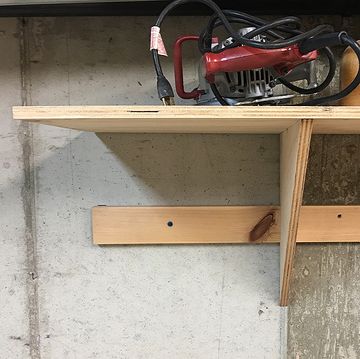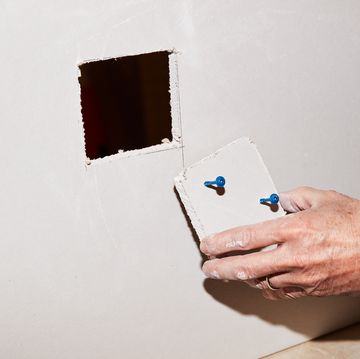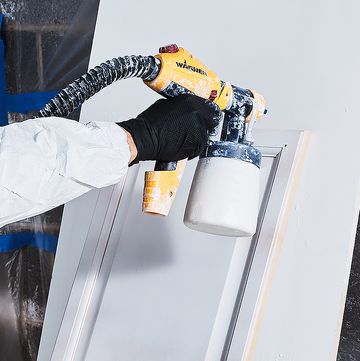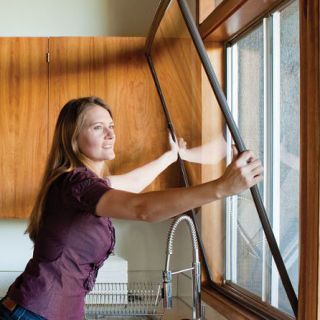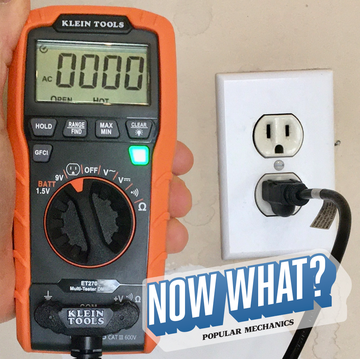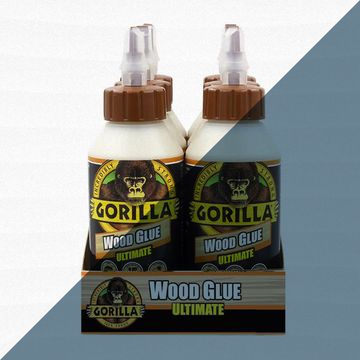A warm, well-insulated garage will provide you usable workspace all year round, even when the outside temperatures drop to frightening lows. But even if you're not planning to spend much time in the shop this winter, there's still good reason to winterize your garage: you could save yourself money and hassle later.
A garage that gets too cold can damage not only to your car but also to the equipment you're storing there. "Water will freeze, no matter where it is. So if you have a power washer that still has water in the pump or lines, it can freeze and crack," says Joe Sainz, application specialist for Robert Bosch Tool Corp. The same is true of fuel gels, which can "gel up" (freeze) inside combustion engines, and even paint, which will separate and ruin if allowed to freeze, Sainz says.
The solution? Winterize your garage as early as possible.
Fix or Replace Weatherstripping
Weatherstripping creates a seal between the garage door and garage door opening. "Over time, this weatherstripping can become brittle and cracked, allowing air to make its way between the door and the frame and create cold drafts," says Konrad Witek, director of engineering at eComfort.com.
If you feel air seeping into the garage, Witek says, remove the existing weatherstripping and scrape off any remaining sealant. "A pry bar and flat scraper or putty knife will make the process much easier," he says. The cleaner and smoother you can make the surface, the easier it will be to install the new weatherstripping, and the better it will seal.
Once the old weather stripping is removed, you can begin measuring to apply the new one. To align the weatherstripping, Witek says you'll need to close the garage door and then align the weather stripping so that the rubber flap flattens slightly against the door. "This will ensure a good seal and easy operation of the garage door," he says.
Insulate Your Garage Walls
However, while it's not hard to purchase fiberglass batt insulation, installing it correctly is another story, Sainz says. "Always be sure to select the proper thickness for your walls and read the installation guide carefully," Sainz says.
Common mistakes include failure to securely fasten the batt insulation, not supporting it, or cutting it too long or short for the location. "Insulation needs to have a snug fit, but it can't be jammed in too tightly," he says.
Fix Up the Garage Door
Witek says there is a variety of products available to insulate garage doors, including specifically designed kits. "Insulation options include foam board, reflective barriers, and fiberglass batt insulation," he says.
Regardless which option you choose, Witek says the insulation will need to be cut to fill the garage door panels, then secured with adhesive to make sure it stays put. "Some garage doors will not have recessed panels that make for an easy insulation project," he says.
Struggling to insulate the door, or still feeling the cold even after putting it in? In some cases, Witek says, the best option may be to replace the door with a modern, insulated design.
Install a Unit Heater in Your Garage
Weatherstripping and insulation will help to protect your garage from extreme winter weather, but on their own, they're not going to keep the garage toasty warm for you. Unit heaters are a great way to heat a garage with minimal space requirements and construction costs, Witek says.
First, choose between a gas or electric heater. Gas-fired units are usually cheaper to operate but are more difficult to install because they require a gas supply and exhaust venting, Witek says. "And electric models are easier to install, but are more costly to operate than gas-fired models." This makes electric unit heaters a great option in areas with mild winters or where you only need heat occasionally, he says.
Another, more efficient electric option worth considering is a mini-split heat pump. "This type of unit will provide efficient year-round heating and cooling to the garage with only a 3-inch hole through an exterior wall required for installation," Witek says.
If you can't afford or don't have time to do every one of these things before winter, start with one. When it comes to winterizing your garage, every little bit helps.


